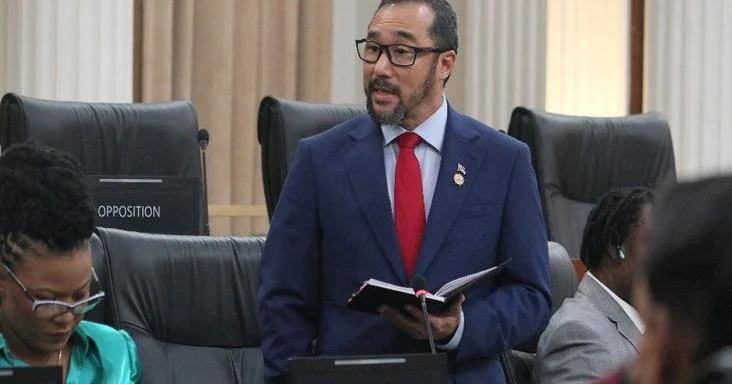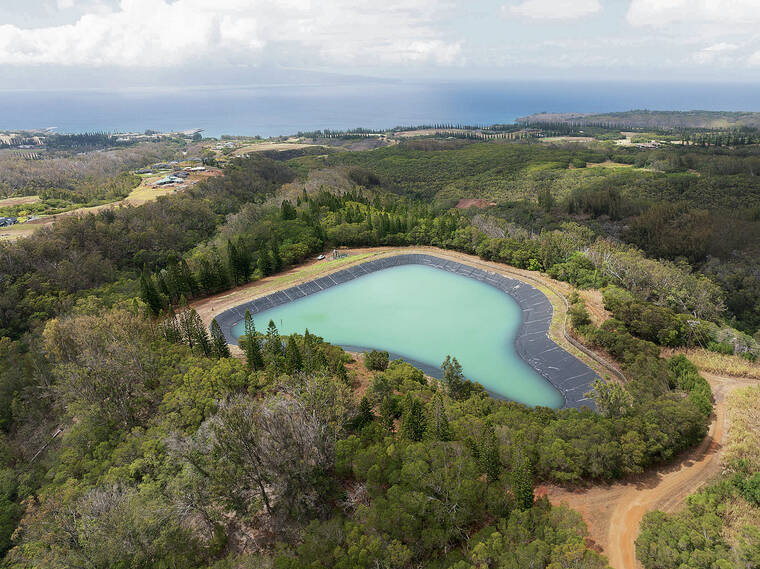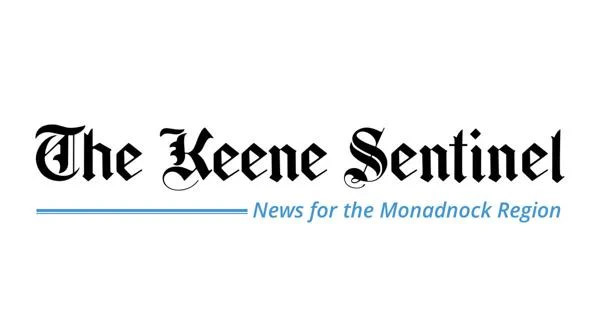By Ria Taitt
Copyright trinidadexpress

House Speaker Jagdeo Singh yesterday abandoned a ten-year-long practice and ruled that no supplementary questions could be put to the Prime Minister during Prime Minister’s Question Time, saying the Standing Orders do not provide for this.
Since the introduction of Prime Minister’s Question Time in 2015, follow-up questions have been permitted.
Leader of Government Business Marvin Gonzales, in a comment to the Saturday Express on the matter, said: “Our democracy is in peril. My colleagues on the other side who enjoyed nine and a half years of asking the then-prime minister (Dr Keith Rowley) questions and supplementary (follow-up) questions, to which he dutifully responded, now look on with glee as we, the PNM, are now prevented from exerci-sing the same kind of parliamentary scrutiny that they were allowed.”
Singh’s ruling prevented Port of Spain North/St Ann’s West MP Stuart Young from putting a supplemental question to the Prime Minister at yesterday’s sitting.
The Speaker began his ruling by raising the “troubling and vexing question” of supplemental questions.
Traditionally, members are allowed four supplemental questions to each question posed during Prime Minister’s Question Time.
The Speaker pointed out that there are four types of questions—Prime Minister’s questions; urgent questions; questions on notice, which are divided into two subcate-gories, questions for oral answer and questions for written answer.
“The interesting thing about these Standing Orders is that Standing Order 26 (which deals with PM Question Time) makes no provision for supplemental questions. Standing Order 27, which deals with urgent questions to a minister, makes provision for two supplemental questions.
“Standing Order 28, which makes provision for answer by a minister on to a question on notice, which must be approved and placed on the Order Paper 21 days after the approval, makes provision for four supplemental questions,” he said.
“Why would the framers of these Standing Orders have given explicit power to members to ask supplemental questions on urgent questions to ministers and questions on notice for oral answer and written answer, but not provide for supplemental questions to the Prime Minister during Prime Minister’s Question Time?” the Speaker asked.
“And that is the vexing debate that I had with myself this morning in preparing for today’s session,” he said.
“Anticipating a flurry of questions,” the Speaker said he looked at the Standing Order and decided there was a very good reason why there was no explicit provision for supplemental questions.
He said in the case of questions on notice, because the amount of time given to formulate the answer (which is 21 days) means that the minister is better prepared to answer supplemental questions.
He said in the case of Prime Mi-nister’s questions, he said the oral questions cannot adequately be addressed because of the breadth of what members are allowed to be asked.
Questions may be put to the Prime Minister relating to current matters of national importance or on the general performance of the Government and the Government agencies,” Singh said.
“These Standing Orders were put into this form after advice was sought, experienced members of Parliament contributed to it, and there must be a reason why the framers of the Standing Orders did not expressly allow for supplemental questions on Prime Minister’s questions,” he said.
Saying that the Standing Orders are silent on the issue of supplemental questions to the Prime Minister, Singh said: “I cannot arrogate to myself, to bring into my jurisdictional bailiwick a power which I simply do not have,” he said.
He added that this power could not be “plucked out” and “dropped with a crane” into Standing Order 26.
Young: It is the
practice in the UK
However, Young pointed to Standing Order 2 (2), which says, “In any matter not provided for in these Standing Orders, resort shall be had to the usage and practice of the House of Commons of the United Kingdom, which shall be followed as far as they may be applicable to this House and are not inconsistent with these Standing Orders or with the practice of this House”.
Young said: “It also goes on at 2-3, (to say) ‘In cases of doubt, the Standing Orders of this House shall be interpreted in the light of the relevant usage and practice of the House of Commons of the United Kingdom, but no restrictions which the House of Commons has introduced in Standing Orders shall be deemed to extend to this House or its members until the House has provided by standing order for such restriction’.”
Young concluded by saying that Standing Order 2 (3-4) says the Speaker shall have power to regulate the conduct of business in all matters not provided for in the Standing Orders.
Young said that having been in the House for the past ten years and having participated in many prime ministerial questions, the practice has obviously ari-sen and become part of the practice of this Chamber and in this House that members are allowed supplementary questions.
“In light of what the Speaker has raised, my duty is merely to point out the express provisions of the Standing Orders that obviously were utilised in prior sessions of the House to allow a course of conduct of supplementary questions,” he said.
Responding to Young, the Speaker stuck with his original proposal to have the Standing Orders Committee convened.
“This (issue) can be easily solved in a matter of an hour,” he said, adding that members were not without remedy since they could ask questions on notice and be allowed supplemental questions or they could ask a question on the Freedom of Information Act.
“So you are not remediless,” he said.
Marvin: It’s a wake-up call
Reiterating the importance of Prime Minister’s Question Time, Gonzales said: “Supplementary questions during PM Question Time serve an essential purpose: to clarify answers given and to allow members to seek further information that is directly relevant. This is the accepted and standard approach in functioning democracies.
“To depart from this practice now is more than a procedural adjustment. It restricts Opposition members’ ability to question the Prime Minister meaningfully, and in doing so, weakens a fundamental mechanism of parliamentary accountability.
“What was especially alarming today was the response of the Government benches. This is the same Government which, while in opposition for nine and a half years, repeatedly pressed the former prime minister with questions and supplementary questions.
“Yet now, faced with a ru-ling that bars supplementals, they pounded their desks approvingly. That is a troubling development in our parliamentary democracy. It is startling and it ought to serve as a wake-up call.”



